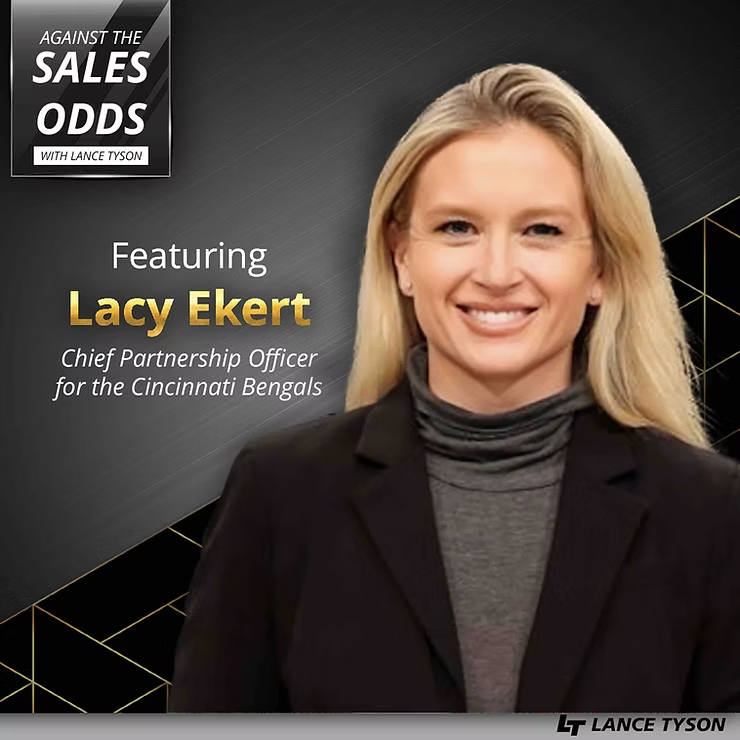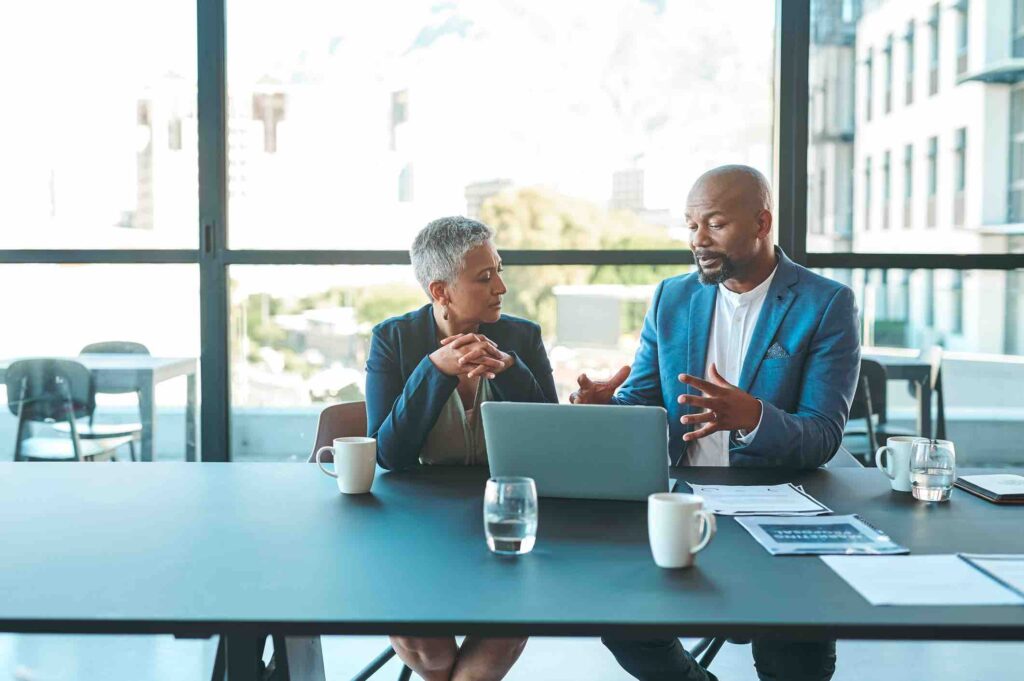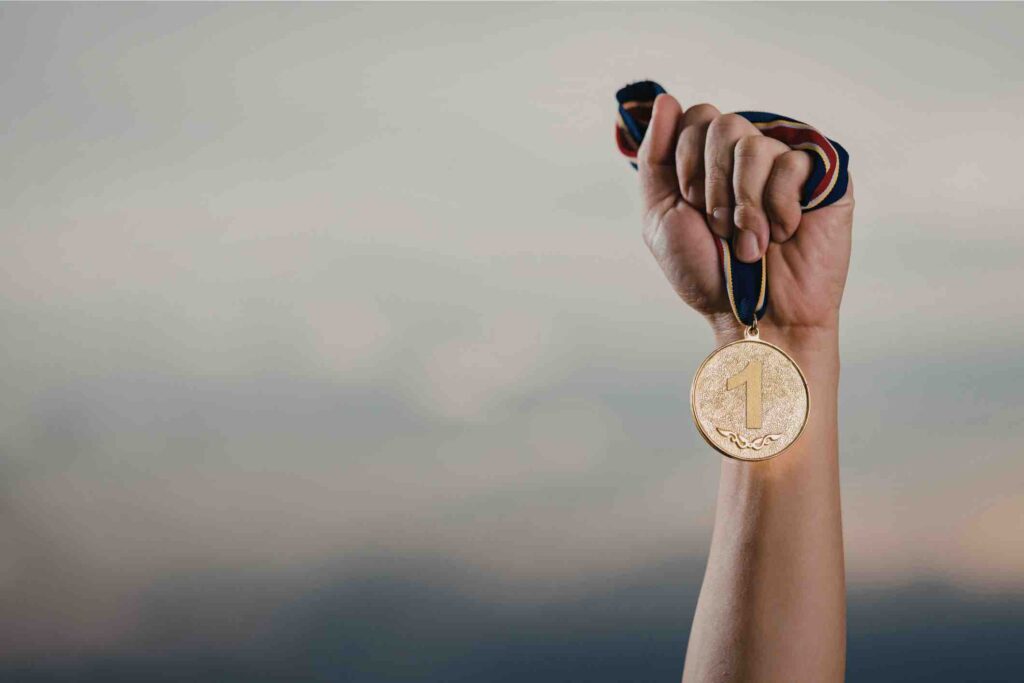Building your network is essential for personal and professional growth. But that network requires a relationship nurtured proactively. In this episode, Lacy Ekert, the Chief Partnership Officer of the Cincinnati Bengals in the NFL, tells us her story, where she grew up, up to her current position, and everything in between. Lacy brings insights on building your network effectively and how to build those relationships through her different opportunities throughout her career. Lacy loves to learn about other companies and people, which has helped her achieve marketing objectives and that has helped continue her career in partnerships. Get to hear Lacy’s strategic approach to fueling growth in the partnership space today!
Sign-up for Lance Tyson’s newsletter HERE.
—
Listen to the podcast here
Building Your Network With Lacy Ekert: The Chief Partnership Officer Of The Cincinnati Bengals
I’m excited about this episode because the person we’re going to talk to is Lacy Ekert, who is the Chief Partnership Officer for the Cincinnati Bengals. She and I go back for a couple of years. If we’ve done anything together, we’ve talked about some good deals together, from her time at Topgolf to some other things that she did. Lacy, welcome to the team because you’re newer with the Bengals. Tell everybody a little bit about yourself and your role now with the Bengals.
Thank you. It’s a pleasure to be here. Thanks for having me. I joined the Bengals Organization. I’m fresh in a new role. It’s a newly created position, Chief Partnership Officer. As you can imagine, there has been a lot of success at the Bengals Organization in the last couple of years since the Super Bowl run. There was a need in the organization to elevate and add some roles at the C-Suite level. How that looked for us is we had a CMO for a long time who’s still here, Brian Sells, who was overseeing all of the partnerships, marketing, and day-to-day activities.
He was promoted to Chief Business Officer. It opened up an opportunity to create a new role on the chief partnership officer’s side. I oversee everything from the partnership, revenue, development, sales, activation, account management, and also suites. We’re in a great position on that side. It’s about single-game suites, preparing, and getting everything ready for training camp, which we’re about to announce.
It’s your first training camp. This is good. Underneath you, you deal with a lot of revenue and you have a lot of staff reporting to you out of suites and the partnership business that you do, which are two very different sales at times, a complex sale or a more simplistic sale around a suite. What hat are you wearing the most in your first two months?
I’ve been lucky coming into an organization that has some great people already. We’re looking to staff up a little bit. We’ve increased our partnership revenue by about 116% over the last season. We have a lot of new partners and have created a lot of assets to sell that previously weren’t sold. How that impacted our business is first-ever stadium naming rights. We have a lot of gate sponsorships. We have a lot of jewel assets that have come on, which have elevated our seven-figure deals.
For us, our team is small and mighty. We’re looking to grow a little bit there, adding headcount and then also supporting our killer sales team. We have a group of guys here that have been here, some of them for many years and some are a few years. For me, it’s helping add value and bringing some of my market experience to them, help even grow revenue, and growing partnerships even more.
We’re going to dive into your career a little bit, but the last market you were in was New York City. You’re now in Cincinnati. You’re going from an East Coast mega-market to a mid-sized Midwest market. How’s that been for you?
I was born and raised in Montana. I’ve been fortunate in my career to live in a lot of different locations. People here think I’m crazy, but I’ve lived not only being born and raised in Montana. My first job out of college was at Nike. I was up in Beaverton, Oregon. I have been in Las Vegas for a number of years since ‘09.
You missed that championship.
I was bummed. I was there in ‘17 when the team was new. It was a great time. I’ve been in Chicago for a little while and New York. There’s a lot of business. There are a lot of companies that are based in Cincinnati and that have a big impact in the major leagues. You have Procter & Gamble here. You have PTG, Kroger, and big companies that have an impact nationwide. You’ll have a lot of business travel between New York and Cincinnati a lot.
There are 5 to 7 Fortune 500s headquartered down that way.
What I’m seeing is it’s a lot of like-minded and a lot of people in the industry enjoy hanging out together. We have a lot of fun. Consistently, every single week, I have been meeting with other teams, CCOs, and people in organizations that are wonderful people. I’d say that’s been my biggest transition there. I’ve been pleasantly surprised on a business front, similar to how it was in New York, being able to be in the mix and meeting.
There are many ad firms there too. There are many brand agencies down in Cincinnati, which is a product of Procter & Gamble anyway. That’s a hotspot. People don’t realize that about Cinci out of all the Midwest cities. You brought up before that you’ve been in a lot of places, as this show usually goes.
You have this responsibility now as the Chief Partnership Officer, a newly formed position in which you’re dealing with all the major partners and hospitality at some level at the stadium with the Bengals. You guys have grown a lot, over 100%, with a lot of new products. You’re making new relationships. How did you get here? What’s the start? You mentioned Montana. How do you get from Montana and a trip around the world? Where’d you go to school? What was that first role that you broke into things then?
I was born and raised in Great Falls, Montana. I went to school at the University of Montana, which, if you’re a sports fan, and even if you aren’t, you might’ve seen Montana State Brawl of the Wild featured on ESPN get college game day for the first time. That’ll make a connection to some of the readers out there. I attribute most of where I’ve been and where I’ve gone through relationships. I learned that very early on by going above and beyond. In college, I’m trying to figure out what would make me stand out and how could I get a job. I graduated back in 2008. That was right when the economy was starting to get tough for jobs.
I enrolled in a marketing field experience. Shout out to the University of Montana. They are forward-thinking with how they were positioning students to try to get people from Montana and at that university into major companies. They made an effort to connect alumni that had been very successful in their current roles back to the university students. They created what was called a marketing field experience class. I’ve since seen at my times at BSE Global in Brooklyn and MBA there are a lot more opportunities now to connect internships any time of the year. It used to be summer. That was your one opportunity. There’s spring, fall, fellowships and there’s so much more. I would encourage people to go and look out there for resources because there’s a lot more than there used to be.
I was blown away. Being able to connect with everybody via LinkedIn nowadays to make sure you’re getting your name out there and your accomplishments are very powerful. I was connected with a gentleman named Eric Sprunk, who was in a C-Suite position at Nike at the time and a University of Montana alum. We were able to go to Nike and spend a couple of days. It was for Business Management, Finance, and Marketing students. They had and set up with all those alumni different experiences for us. We went to Wieden+Kennedy, Nike, Pacific Crest Securities, and Microsoft. What we were able to do by having such strong leadership at the university is we were able to go out there and make our own connections.
From that, I was starting to get nervous that I would be, “With all these other people, I wanted to work for Nike. How was I going to get in?” I kept in touch with alumni that I had met there. I went out on spring break. All my other friends were going and doing their thing and having fun. I went out to Beaverton, Oregon, and asked for people to have fifteen minutes of coffee with me. It went a long way.
Connect with everybody via LinkedIn to ensure you’re getting your name and your accomplishments out there.
You took a spring break to meet with people. I loved that.
I felt like my mentality was if I waited until college graduation, that was too late. That’s when everybody was going to be thinking about it. I was thinking about it in January and February, “How was I going to be able to get ahead?” Jobs there are very difficult, especially if you’re not coming from D1 or you’re not a D1 athlete. It’s tough to get those connections. What has always been my mentality is to try to create authentic relationships and show that you care and work hard and that eventually will pay off. That’s how I’ve been able to move and been either recruited or recommended for a lot of the jobs that I’ve taken.
Try to create authentic relationships and show that you care and work hard.
What did you do at Nike? What was that role?
I was essentially on a contract there. I worked for Nike.net, where I was in an operations specialist role. It was a jack of all trades. Nike.net is a B2B retailer. If you’re a consumer, you’re buying on Nike.com. If you’re a retailer, B2B, you’re buying on Nike.net. We are working on a lot of outbound and marketing campaigns. This is going back to when there was a big salesforce and reps that would go and meet with the smaller retailers of the world and show them the product lines. That was when a lot was moving online and digitally. It was an interesting time in eCommerce.
How long were you there?
I was only there for about one year because I was on a contract.
It was a year contract. You convinced them off that network and you get there. What did you pick up from there? What was the big thing?
Nike was far ahead of every other company when I think back on how their philosophy was and work-life balance. They didn’t have 9:00 to 5:00. People were working on their own schedules. They were wearing shorts and athletic apparel to work. They had the Bo Jackson workout center. They had all these different places where they were doing CrossFit and everything was included and what they were able to do and how they treated employees. They were at the forefront of LGBTQ, which back then, a lot of companies weren’t even putting as part of support in their HR organization.
I learned that there are many great people and there are many people that you can learn from. There are thousands of people. I was happy to be there and happy to learn from each and every person I could. I tried to take on as many projects as possible so that I could learn eventually where I would want to go and what I would potentially want to do.
What was the move from there?
There were a couple of options to move to corporate retail or some others because you can move contracts or you can take other positions within it. At an entry level, there are different opportunities depending on what’s available at the time. I didn’t want to go that route. There were tons of layoffs at that time, unfortunately, because that was when the workforce was reduced by a huge percentage. Everybody was getting impacted in 2008.
That was that whole financial fallout.
I was passionate about nonprofits at the time. One of my family members had worked at the American Heart Association and she was running their LA market. She talked to me about why I wanted to do that and how exciting and great it was to be able to give back. I interviewed with American Heart. They had a couple of positions in different markets, but that’s how I ended up in Las Vegas. I was the Director of Business Development for the American Heart Association.
I did not know that about you. It’s cool because we have something in common. I didn’t work full-time for United Way, but for five years, I was in their business development program. I used to call on companies to do United Way campaigns. It was like a part-time thing that you would donate your time to, but I didn’t know you were a not-for-profit. That’s awesome.
It was great. If anybody is ever considering that, or if you were younger in your career and you’re trying to get into partnerships or you want to develop your skills, that’s a great way to do it. I’ll tell you why. You’re given the reigns to reach out to any organization at the time. For me, it was Southern Nevada. We had the Heart Walk, Go Red For Women Luncheon, and Heart Ball. Usually, there’s somebody that runs the market there. You’re building a board of directors. You’re asking CEOs, CMOs, and VPs of marketing to sit on your board and help you raise funds to advance lifesaving research for heart disease and stroke.
I met hundreds of people in southern Nevada. Some of those people are some of my best friends nowadays. They’re some of the people that I honestly ended up being sponsors of us at Topgolf and, down the road, relationships that I still value. It was many years ago. It’s good when you can see people come together at the community level because that’s what organizations are tasked with supporting and giving back to the community.
Working for a not-for-profit, is it that different from a sale or do you still approach it the same way? I know my thoughts are on it, but I love yours.
For me, there’s a level of authenticity. I am naturally that way. If you don’t feel like you’re a natural relationship builder or you struggle to be authentic in your sale or your approach, there’s more of a level of authenticity needed in that because people have a personal connection to the mission. A lot of times, people are supporting it because they know someone, they’re personally affected, or their organization is affected in some way. It’s a little bit of a different approach there.

Building Your Network: People have a personal connection to the mission. Often, people support it because of how they connect.
There’s some passion and authenticity there.
It’s more about a connection to the community than it is about specific marketing assets and specific, measurable ROI.
You’re still making the connection with people. You’re still trying to drive to some outcome. Is that where it’s more similar?
Yes.
How long did you do that?
I was there for about three years.
As your philosophy and strategies start to form, you come from Nike and you’re about relationships. You’re opportunistic, and I love the spring break story. You’re in that year contract, and then you’re like, “I’m going to leave sports and go to a nonprofit.” You take the opportunity. You start to grow that for three years. What there shapes your philosophy? What’s the 1 or 2 things?
The one thing I loved there and what propelled me into wanting to continue a job in partnerships was because I love to learn about companies and people. I love to be able to help where I could achieve their marketing objectives or to understand more. I learned so much about the healthcare industry and the automotive business. All the categories and partnerships for nonprofits are very similar to what’s in sports if you look at it.
There’s no doubt. You learned that you being able to gobble up knowledge, get a clear understanding of things and get that from there. You could probably start to see the strategy around things and how things come together. What’s the move from there? It’s interesting what I’m noticing. Very rarely the people I have on the show where many folks that are struggling with their career hell-bent on another move where I find successful people, they’re more opportunistic. They jump and dive into the opportunity. You can’t necessarily see in the distance, but the next move develops, like the one that you did from Nike to the American Heart Association. You talk to a relative and you’re like, “This is good for me.” What’s that next move?
When I was building out the board at American Heart, one of the board members was with CBS at the time in media and marketing. CBS has a couple of different arms to it. It’s mostly known probably by the CBS radio division and TV, which was building out digital at the time through Radio.com. They had an experiential arm. A gentleman on there, his name was Jerry, side-barred me and said, “I want to talk to you about this open role. It’s a director of integrated sales and marketing role. It is across our media and experiential divisions. We think you’d be great for it. Would you consider it?”
He recruited me because he said, “You’re going to be meeting with business leaders. I’ve seen you run boards with CEOs in town. You have great relationships. We could use someone like you that’s forward thinking that can help us grow our revenue. It was still a big pillar in the community because, as you know, media, news, and all of that locally is a big driver to connect back to the community.” I was recruited to come over there. I spent 4 years there and 3 in Las Vegas and then I moved to Chicago. I was promoted to Chicago to do the same thing, which in media, as we know, Chicago is a top three media market in the United States. Las Vegas is a smaller market. It’s not on the media side as big.
Media and news are big drivers to connect back to the community.
However, Las Vegas gets very large events. I could compare it to iHeartRadio. iHeartRadio Music Festival was the type of thing we were working on. We worked with Cosmopolitan and did SPF. This is going back a little bit, but Robin Thicke had Blurred Lines and all these big national promotions. I worked with the team there to make sure that Las Vegas was on the map as the destination. We rallied thousands of radio stations nationwide and did a massive focus on Las Vegas to do that. If you think about how long ago that was, it’s crazy.
Everybody thinks that happens now, but it didn’t used to be the case. In Chicago, that had a major news and sports edition, which I was looking for. We had the media rights to the Cubs, White Sox, and Bears.
You make the leap from Vegas to Chicago. Is it a promotion and responsibility or just the market is bigger?
Yes.
You are way more responsibility.
Promotion and responsibility, way bigger team, way bigger revenue targets, and then with the addition of news and sports. News radio and sports on its own have huge revenue projections with the base of listeners and viewers that they have out there.
Did you lead a team in Vegas, or was the move to Chicago a first-run leadership or were you on a team? I’m trying to follow there.
The way that it was structured was there were quite a few sales reps. In Vegas, there were 5 or 6. In Chicago, it was fifteen. My goal was I have a revenue bucket that I managed. It’s called non-traditional revenue. It wasn’t just radio or digital. It was everything collective. They would make dotted-line reports to me to sell sponsorships for big music festivals, events, and all sorts of different things. We had an arsenal of things that we could sell our business lines.
Inside your vertical, you’re managing and leading that process. The people that would sell into that is the dotted line. You would have to lead them and hold them accountable for whatever they were selling into that line. What was the spin on CBS? Do you say the 7, 3, and 4, like 3 in Vegas and 4 in Chicago? How long were you there?
It was four at CBS all in.
Now you have this whole other side of business acumen. Not only do you understand the partnership side and things that are way bigger revenue, fast-moving media, and a very big market. You’re in sports now because what you’re selling is now more affiliated with sports. You’re back in that move again.
What I learned in Chicago was it became more well-rounded when it became more to the media buying side. I became certified in selling all the new campaigns that were coming out. That was when podcasts were big at the time. That was a relatively new time for podcasts. I was looking to enhance my experience there across the digital and media landscape, understanding how agencies were buying, what they were buying, and the types of dollars that were being spent. I feel like being in that media market was beneficial for me. Also, making the connections that I did in the Chicago market.
When I first met you, I immediately saw how good you were with strategy. You and I going back and forth with that TCL deal at Topgolf, you are being able to see everything and work through some of your salespeople there. What business or sales skills did you develop between American Heart Association and CBS? What’s that big skill? No doubt, relationship building is your thing, but face-to-face, one-on-one, and in a group you’re selling, why do you have a lot of confidence in what you do? I’m interested to know what you say here.
At the time, I was still young coming into a lot of these meetings at a C-level. My biggest trait is I want to be the most confident person in the room. I want to understand and be passionate about what it is that I’m selling and what it is that I’m talking about. For me, I want to be the most confident when I come into a room and I’m having conversations. That confidence to me and how I build that up is that I know more than everybody else in the room about what I’m talking about or what I’m pitching.
I spend a lot of time researching before I pitch so that I can have effective questions and communication. That’s what I learned a lot from you, which is making the most out of the time and asking the right questions, how you can position people, and how you can negotiate. It changes the game when you’re talking to someone and you can get quicker to the point and get more out of those types of presentations and meetings. That’s where I’ve seen I’m a little different than others that I’ve been around.
Rate yourself here. I was coaching somebody with an MBA team. He didn’t do great in a presentation we were watching him on. He sees him. He came back and goes, “What is it?” I said, “One, you don’t have a presence. You’re just nonchalant”. Presence is confidence. If you want to be confident at times, act that way, but I also think doing research adds a tremendous of that. I said, “The presence and the confidence felt like you had less authority.” You want to have authority when you’re doing anything. There’s another side, and then there’s negotiation. To somebody that was in it with you, how would they rate you as a negotiator?
You can always be a better negotiator because you always have chips on the table. I’d say I’m a pretty good negotiator. If I had to rank it out of 10, maybe I’d be a 7. I think I always have room for improvement, but I also think you have to know what you’re negotiating against. That’s what I try to understand as a person. I try to do the best that I can. It’s been different in a virtual world to try to get a better read on people, and doing more negotiating digitally has been tougher.
You can always be a better negotiator because you always have chips on the table.
I’d rank you a little higher. Here’s why, and no smoke intended. I’ve yet to sense from you as long as I’ve known you and of various things, I’m not saying you don’t get emotional, but you don’t show your emotion, which if I was negotiating with you, I’d be doing something to see if you got pissed off or hot about something. It would be hard to poke the bear on that one with you because if it’s that poker face or that chest face, I’ve yet to hear you even get emotional.
I even think back to that one time when you had a salesperson. We don’t have to name the person here, but they were selling to that candy store in Vegas or that candy shop. You were frustrated with what did or didn’t happen there, but you didn’t show the frustration. I’m like, “She’d be hard to negotiate against,” because there were enough things that lined up with what you and I were talking about to be pissed off, and you weren’t. I’m like, “This is good.” you develop this confidence, this prep, and you want to leverage that. What’s that next move? You work for a very successful NFL team. What’s that next move? Where do you go? Is this Topgolf now? Is this when you start to arrive there?
This is Topgolf. At the time, my now husband was based primarily on the West Coast. I was personally looking to get for a move to get back. That was what triggered it. I loved working in Chicago. I made a lot of great friends that are lifelong friends and agencies like Intersport that I still work with to this day. I was looking for opportunities. People might say, “You have a very interesting background.” Having a diverse background is key to getting where you want to go faster. That has been one of the biggest things that has championed the speed of my career.
I had done a lot of research on a company called Topgolf. I knew somebody back in Las Vegas who was the GM of the property that was opening. At the time, a lot of people didn’t know about Topgolf or didn’t know what was happening. If you saw it from 30,000 feet and then you dug in, you would know that the goals and the objectives of that company were to be the fastest-growing sports entertainment company in the world. How they were going to get there was more about technology than it was about golf, which a lot of people didn’t know.
It was about all of the different business lines. If you looked at the acquisitions that were being made and the people that were being hired, it was essentially probably one of the best opportunities in sports I saw out there. It was a startup mentality, which was something I was very interested in being a part of at the time.
I remember when we started to work together, the big objection with all the teams at Topgolf and I used to laugh about this because I thought it was the best was, “You’re charging us NFL prices without the media? Who are you?” That was the objection. I remember when I heard, I go, “I better dig into this because I don’t know how you’re going to deal with that because that’s a good objection.” A lot of the sponsors you’re calling on didn’t understand. They maybe knew of Topgolf or didn’t, but it was this education in the beginning and the prices were high. I’m not knocking Topgolf charges what you can. They’re a good customer of mine, but I thought it was an interesting time then.
The Topgolf was about education because of how quickly that team was built. I was employee number four. We brought on to build an entire partnership division. At the time, there were only 15 venues in the United States and 3 in the UK.
It originates in the UK.
We joked that it was the oldest startup known because it was originally all the way back in 2000 that those venues were open in the UK. It wasn’t until Erik Anderson, who was the Chairman, brought the rights to Topgolf to the United States and started moving some things around, including the headquarters moved to Dallas. That was spearheading. They got an influx of private equity. It started in 2016, which is when I started there. It was the very beginning of what you’re seeing now. When I left, there were about 75 venues. It’s a powerhouse. I spent six years there. It was the best time in my career that I’ve ever had, working with some of the best and very motivated people from all over professional sports. You had the Mavericks, Star, and IMG Golf. There were many different people.
There were great teams and to watch that trajectory go. I didn’t realize you were there when there were only five. You saw all the growth.
Rodney Ferrell, who’s the VP started everything over there. Even a few years before that, he’s credited to bring the vision of, “You have all these venues now. I know how we can monetize and bring forth and use this media network,” if you think about how strategic that was to build out a media network to specifically build it the way that consumers engage and how you can have multiple touch points. Not only adding a layer to bring on the number one eSports golf game in the world, bringing on experiential tours to it, and bringing on a top racer. There are a lot of layers there that are exciting.

Building Your Network: Build out a media network to specifically build it, how consumers engage, and how you can have multiple touch points.
You started to build out some more of a West Coast team. That was important to you. What did you learn about there at Topgolf that started to form your leadership philosophy?
Topgolf was a tough sell. Not everybody has the ability to be that creative. Some of the deals that we worked on there took years to get clients on board and buy into what we had. Even at 50 or 60 venues at the time, we had more people coming to Topgolf than any of the professional sports leagues combined. We had Millennials and the sweet target for any advertiser that wants to bring about it. It was tough. We hired a lot of younger sellers. It was coaching them. A lot of them are remote.
When I was at Topgolf, I was fully remote living in Las Vegas but based out of Dallas and building the global flagship, which was internationally the focus of the company five years before its time. I have had people in Arizona and Dallas. I was reporting back to Dallas. I had people in LA. The most challenging part was to effectively manage remotely. When we would make trips to be together, it was trying to make the most out of those times. Whether it was doing training with you guys and making sure that we were making the connections and people felt part of the team was challenging.

Building Your Network: Ensuring we were making the connections and people felt part of the team can be challenging.
You were a forerunner to what happened in the pandemic because you guys already operated that way. You said something else that I thought was interesting around the coaching and training that you had to do. Our group does a lot in partnerships. We do stuff outside of sports. Especially, in the beginning, I felt that a Topgolf sale was very transactional. It always was more long-term. It wasn’t like you were trying to tie more things in with that education and people trying to understand what it was. I could be wrong in saying that, but I’m saying what it felt like. You always had the salespeople presenting to understand the business they were calling on so they could dovetail Topgolf into that brand. Am I accurate there? That’s what it always felt like to me.
It’s challenging to sell a partnership nationwide, but that touches 75 independent venues. That’s tough. Now when you look at sports teams, and here at the Bengals, we have one facility, that’s difficult. When you have 75 different decision-makers at the corporate level, at some point, your communication has to be good.
I’m sure there’s a lot of internal negotiation there, as much as anything. I bet that was a big internal and external negotiation. You’re there and then you have a shorter stint. I remember you and I talked and engaged in the conversation. I was like, “What’s the goal? Where are you going?” I don’t want to put words in your mouth with some of these bigger teams and 1 of the 4 leagues. You landed a big role at Brooklyn Sports Entertainment. You went back to a big city, back East. What did you learn at Brooklyn Sports Entertainment before you got here?
For people that try to make a jump, sometimes it’s interesting to see why and how you made that decision to move. I love working at Topgolf. It was an amazing time. For me, the time was right because back in 2020, we took the company public in a merger with Callaway. After the six years that we were there building, we finally made it. We achieved it. That was a huge piece of me that I was very proud of. I felt that there was more to learn and more to do for me professionally. The Brooklyn position was a title bump to VP of Partnership Development.
It was the opportunity to go to a media market, number one, to make contacts at the highest level at the biggest agencies. At the time, Brooklyn Nets were very big momentum. There’s a lot of opportunity at the Barclays Center to bring on partners. Also, the opportunity to work in the WNBA. The Liberty now plays there. It is a huge opportunity that I felt passionate about that I could learn and drive value. I don’t ever want to accept something if I don’t feel like I can deliver exceptional value to the organization based on my experience or my motivation to be there. The biggest thing that I learned there is it can be tough in those markets.
You’re working with people that are very sharp, that have been in the industry a long time, and who are going to challenge you. You need to know what you’re doing and how you’re positioning. Topgolf was in an area of its own. We weren’t competing against sports teams.
We might get some of that budget, but it was more of a national play. In New York, I’m competing against the Knicks and every single sports team there. To get the share of dollars in that market was tough. We were a challenger brand. We looked at it that way. We were trendy and edgy. We looked at everything the way that we thought, where we could stand out and how we could authentically connect with audiences. We did a great job there. We brought on some killer deals that were unique to Brooklyn.
You get the shot, the call, and the interview. You got a chance to go to the Shield. Now you’re looking at that and you’re like, “This is it.” You get the call for the big role. You probably prepared and went in very confident. I know you would, like a boss. When somebody asks me about you, “What is about Lacy?” I go, “She’s a boss.” “What do you mean?” “She’s just a boss.” I’m not a hardened flower guy. That’s my compliment. I’m sure you went in that way. There are two things as we bring this thing down for landing. For yourself, what are you most excited about? Flip it over. What are you most nervous about or where’s the gap for you, whether it’s nervousness, where you’re like, “This might be a little bit of a pothole for me?” Tell me about those two things.
I’m most excited about the future and the leadership of the organization. The ownership group is amazing. I report directly to them. I’ve seen the vision. It’s very motivating to see what they’re doing. A lot of it is going to stem. A lot of people are going to see it this season with what’s going on at the stadium and exciting projects. For me, that’s the biggest piece.
On the other side of it, what am I most nervous about? By nature, I want to win. I call it nervousness, but we’ve got some big lofty goals. Joe Burrow is an amazing guy. We’re behind him all the way. We have some big lofty goals as an organization. I’m going to stick it out and make sure that we get those. It’s motivation and fire every day to make sure that we’re working to be one of the best teams in the NFL.
Three questions I always ask. Everybody would want the answer to this. You’ve lived all over the place, from me watching Yellowstone and thinking about Montana to some of the major markets in the country. Big deal, whether it’s any of those markets. What’s that song playing in your head, whether it’s pump-up music or what’s the song for you?
Songs are tough for me because I like all genres of music, but for me, it’s Wayne Newton because we got our Golden Knight, who just won a cup. It’s Las Vegas.
If you had a niece or nephew or somebody you were close to one of their children, they were 7 or 8 years old, it doesn’t matter if it was a boy or girl and they say, “What’s it mean to be successful?” how would you tell them as a 7 or 8-year-old what success meant?
Success ultimately is being able to enjoy what you do not every day because not everybody enjoys it every day, but getting to enjoy what you do and being proud of what you do. That’s what success means to me.
Do you feel that way now?
I do. My nephew, Peyton, we’ve talked about this a lot. It’s his birthday. He rocked the Ja’Marr Chase Jerseys for his birthday. He was pumped.
Last question. Not everybody’s a reader, but if you had a gift one book to somebody and it would be your go-to book that you would gift, what would you gift?
It is OG, but I still think Good To Great is the book because for me personally, I achieve and I strive for excellence in everything that we do. For me, even when we’re working with some of our people on the account team and we have clients coming in at the C-level in our stadium, I want that to be an excellent and great experience. Whatever that is that you do personally in your job day-to-day, I strive to make sure that people do it at a great level or an excellent level. That’s always one. Oldie goldie, but I still love it.
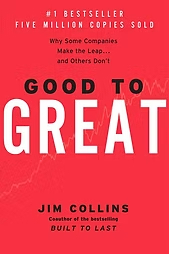
Good to Great: Why Some Companies Make the Leap and Others Don’t
It’s on my shelf. The bottom line is average is the enemy of great. I’m with you. I love that book. It’s a book I gift in the past. To pull this together, there are a couple of things I’ve taken out of it. You’re right about the non-traditional or diverse way you went about your success. You arrived. Each step of the way, you’ve prepped yourself for success. It was not a straight line. There’s nothing you did there that was a straight line. There are risks involved and I love that.
If you’re reading this, this is Lacy. This is how she talks. She’s her authentic self. I love the advice on confidence that prep. Too many people wing it. They don’t do their own prep. They let people prep for them, and that yields confidence. I fully expect you to say that you’re a good negotiator. I had never asked you that, but I know.
I can let people know that about me.
I’m pretty sure, at this point, anybody who followed your trajectory knows it’s not a secret anymore. The last thing is you didn’t chase the money or the title. It happened. Title and money follow, they don’t ever lead. That has gained you speed in your career because if you look at your career, you got some speed to success there and that a lot of people look at like, “How the heck did she get there?” Thank you so much for being on. I can’t wait to get this out. I appreciate you.
Thanks for having me. It is great to talk to you.
Important Links
Cincinnati Bengals Good To Great
About Lacy Ekert
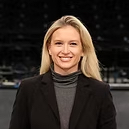
Lacy, a Montana native, joined the Bengals from BSE Global, the parent company of Barclays Center and notable owner of the NBA Brooklyn Nets and WNBA New York Liberty. Prior to BSE Global, Lacy spent six years at Topgolf growing its holistic partnership strategy and client portfolio, along with time at CBS, the American Heart Association, and NIKE. Lacy brings excellent relationships with global brands and agencies, experience in the digital and media spaces, and a creative and strategic approach to prospect and package deals to continue fueling our growth in the partnership space. She oversees Bengal’s commercial business, including sponsorship sales, account management, activation, and premium teams.

